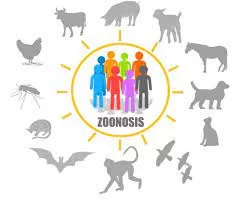A recent study published in the European Journal of Clinical Nutrition has revealed that adherence to the Dietary Approaches to Stop Hypertension (DASH) diet during pregnancy may significantly reduce the risk of having large-for-gestational-age (LGA) babies. This finding suggests a potential pathway to promoting healthier birth weights, particularly in lower-income populations where metabolic health disparities are often more pronounced.
The Brazilian study analyzed 601 mother-baby pairs, with an average maternal age of 27. Notably, 13% of the babies were classified as LGA, while 10% were considered small-for-gestational-age (SGA). Researchers observed that women who delivered LGA babies were more likely to have a higher pre-pregnancy body mass index (BMI).
The study’s key finding highlighted a significant correlation between dietary habits and birth weight. Women who consumed fewer nuts, legumes, and oilseeds—essential components of the DASH diet—were at a higher risk of having LGA babies. These foods are rich in nutrients such as omega-3 fatty acids and soluble fiber, which play crucial roles in regulating blood glucose and cholesterol levels.
Furthermore, the study found that women with high adherence to the DASH diet were 49% less likely to have LGA babies. While the research did not establish a link between the DASH diet and the risk of SGA, previous studies have indicated that adherence to the DASH diet is associated with improved metabolic outcomes during pregnancy.
The DASH diet, known for its emphasis on fruits, vegetables, whole grains, lean proteins, and low-fat dairy, appears to offer significant metabolic benefits during pregnancy. This study reinforces the importance of dietary choices in influencing birth outcomes and underscores the potential of the DASH diet as a tool for promoting healthier pregnancies, especially in vulnerable populations.
Disclaimer: This news article is based on a single study and should not be taken as definitive medical advice. Pregnant individuals should consult with their healthcare provider or a registered dietitian before making significant changes to their diet. Individual results may vary, and further research is needed to fully understand the long-term effects of the DASH diet during pregnancy.(https://www.emedinexus.com/post/47217/DASH-Diet-in-Pregnancy-Linked-to-Healthier-Birth-Weights-Study-Reveals)












